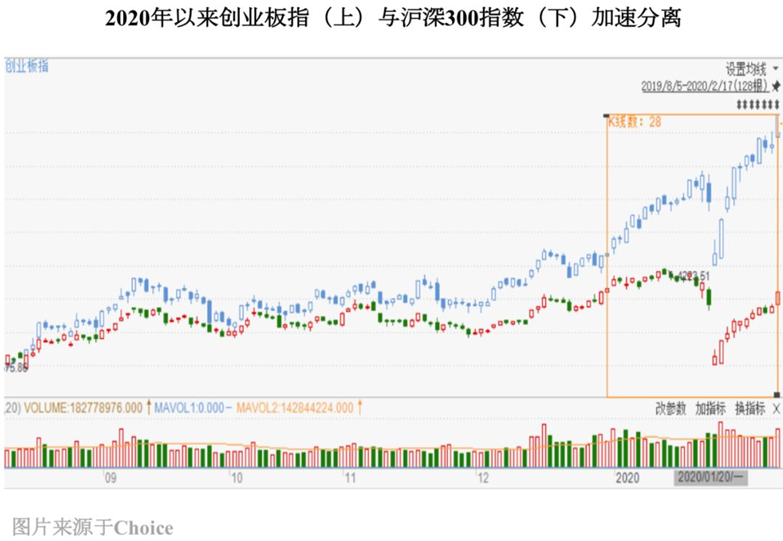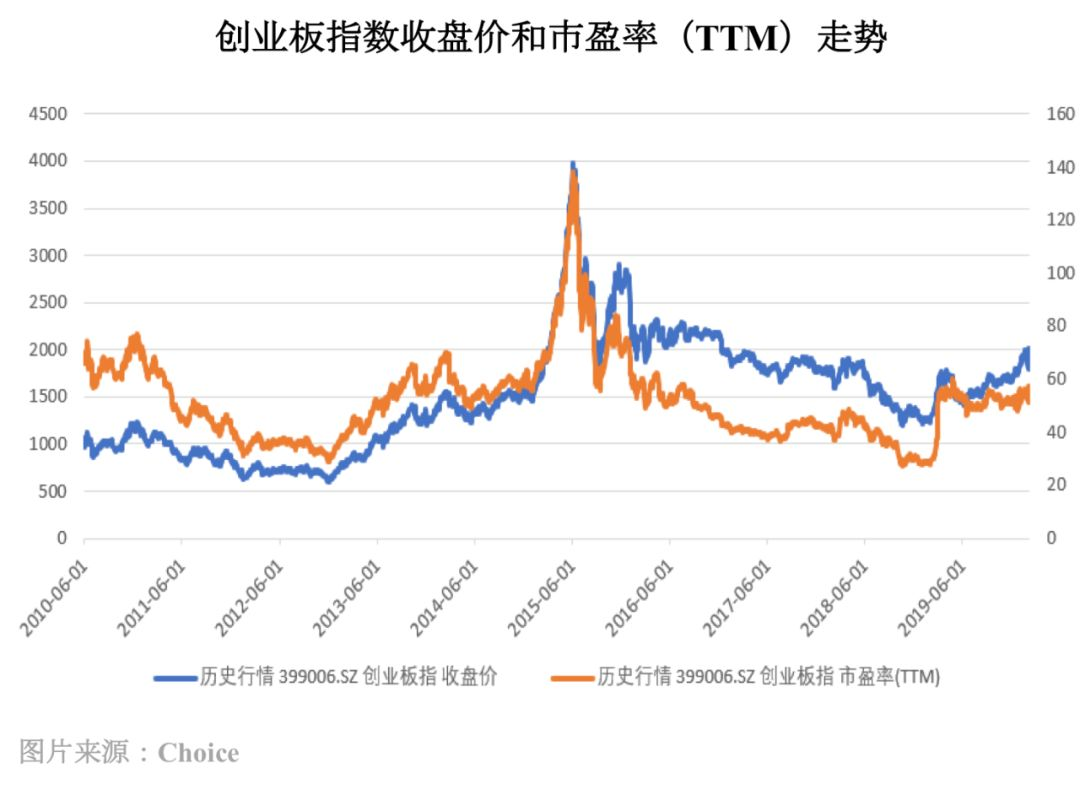On the evening of February 14, 2020, the Securities Regulatory Commission issued the revised:
Measures for the Administration of Securities issuance of listed companies
Interim measures for the Administration of Securities issuance of companies listed on the growth Enterprise Market
Detailed rules for the implementation of non-public offerings of listed companies (collectively referred to as the New rules on refinancing)
This revision significantly relaxes the regulatory requirements for directional additional shares issued by companies listed on the main board (small and medium-sized board) and gem, including the relaxation of the restricted period for subscribers, the number of targeted issuers, the maximum issue discount, the determination of the pricing base date, and so on.
With this massive descriptive information, the market seems to have found a reason for the gem's strength since 2020:
The introduction of new refinancing rules will stimulate the increase in the number of mergers and acquisitions, coupled with the weakening influence of the impairment of goodwill in the previous cycle, in terms of marginal impact, the gem which was originally difficult to refinance has obviously benefited more. Therefore, the expansion superimposed by endogenous growth will make the performance of gem grow faster in the future, which seems to be able to get a higher premium.

In addition, in terms of liquidity, under the global pattern, long-term aging leads to downward interest rates, domestic financial supply-side reform in the medium term, and reducing the cost of physical financing requires a loose financial environment. In the short term, with the change of the COVID-19 epidemic, the central bank has released a huge amount of liquidity through the open market.
As a result, the market's risk appetite has risen, and it seems reasonable for the gem to accept higher valuations.
Is the situation really so optimistic?
If we put aside these descriptive information and look at the basic proportional data only from a historical point of view, reason can help transcend emotion.
In my last article, "the epidemic impacts the short-term economy, but the long-term impact on A-shares is limited", I counted the data of all PE (TTM) of gem up to February 6, 2020.
The gem refers to the PE level of 57.45 in the last 12 months, which is roughly 72 per cent in the past nine years and eight months (since the beginning of the index), far exceeding the level of 11.81 times PE in the CSI 300 index in the same period and 46 per cent in the 10-year history.
As of February 17, 2020, as the gem index continues to climb, this data has taken another step forward.
Affected by emotional factors, the gem feast is likely to continue in the short and medium term, and the higher PE than 57.45x and the higher quantile than 72.0% will still be ignored by most investors.
Why is that?
The problem with truth is that it makes most people uncomfortable and often very boring. What people are looking for is something more interesting and enjoyable.
From the perspective of behavioral finance, people always prefer personal experience with emotion to the cold and unemotional basic proportion.
But reason tells us that the market is destined to be dominated by economic laws, and the price of stocks ultimately depends on all the cash flow income that can be earned from the company in the future.
Therefore, it is an inevitable conclusion that the higher the consideration for the current income per unit, the lower the future total rate of return. People are easy to accept worthless descriptive information, which is related to human cognitive style. Numerous studies by psychologists have shown that when most people are faced with huge amounts of data, the brain creates cognitive shortcuts to help them make decisions.
This cognitive shortcut is called heuristic, which is a rule of thumb that many intuitive forecasters rely on when making a large number of complex decisions or predictions.
This cognitive style can lead to many deviations in behavior, such as overconfidence, over-optimism, hindsight, wavering, and so on.
With regard to the topic of gem, the author talks about two more possible behavioral deviations:
1. Preference complexity
To put it simply, I think too much.
Occam's razor has always been the guiding principle of modern science, requiring that what can be done with fewer assumptions, do not bother to make more assumptions. Therefore, the simplest theory is often the best.
two。 Proximate cause effect
The information is weighted according to time, giving the most weight to the recent information, which causes people to pay too much attention to the recent information and despise the information of the past.
So, what is the correct cognitive style?
The answer is quantitative analysis.
Using this method, the forecaster does not make any subjective judgment or rely on the heuristic method of the rule of thumb, but draws a conclusion based on the relationship between the data obtained by the empirical method and the corresponding results.
A successful investment must be based on a proven investment strategy based on huge amounts of historical data, as well as an acceptable average winning rate. Then persistently and patiently implement the established investment strategy.
The content of an investment strategy is nothing more than a combination of single factors or multiple factors, such as cash flow, return on net assets, sales, profit, EBITDA, dividend yield, price / cash flow, and various corporate value ratios.
Edit / Sylvie
